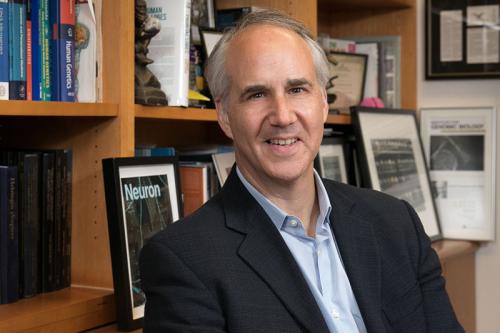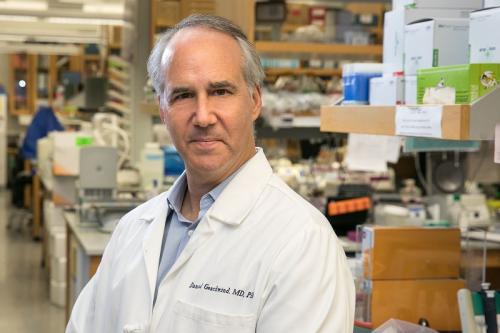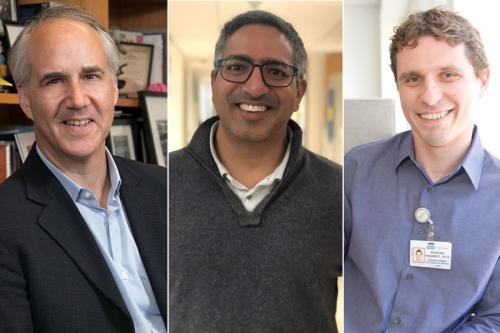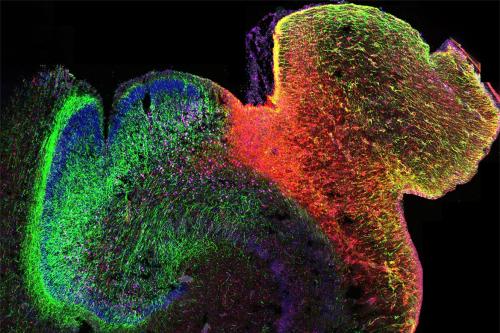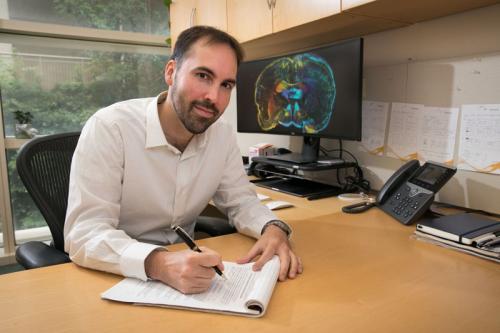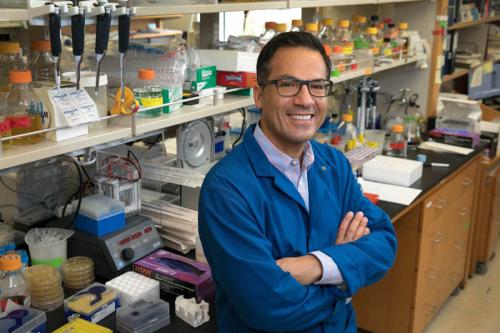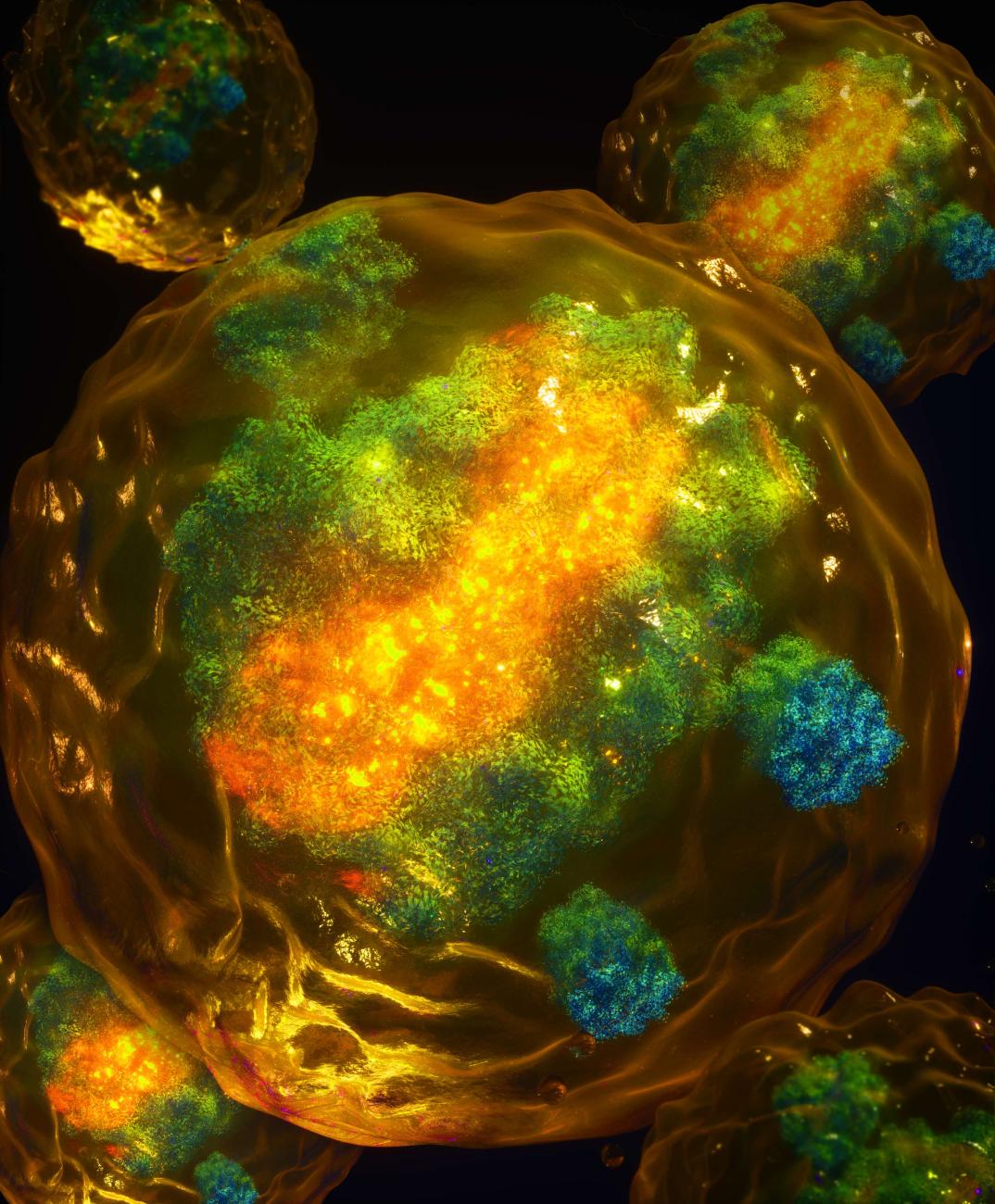
Genetics & Genomics
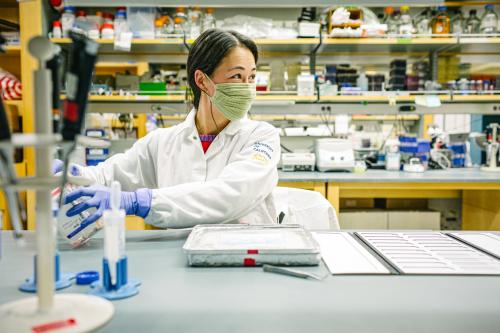
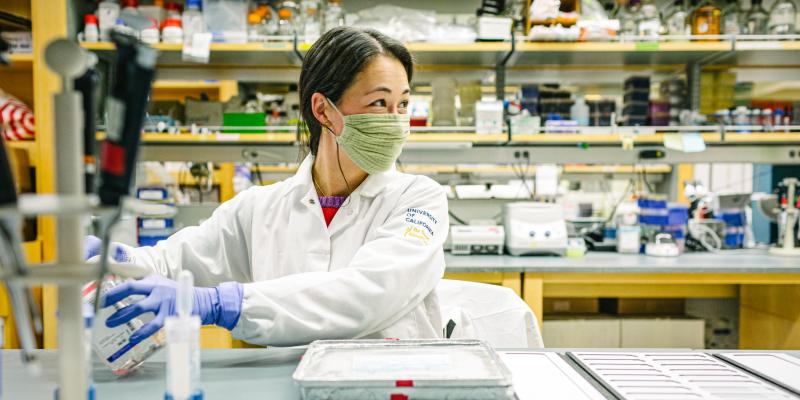
Overview
Genetics and genomics have the potential to transform how we prevent, diagnose, treat and monitor illness. Genetics yields insights into the effects of single genes that are passed down through generations while genomics builds on this area of study by exploring the entire set of genes and their interactions within an organism.
Center scientists are utilizing stem cells Cells that have the ability to differentiate into multiple types of cells and make an unlimited number of copies of themselves. stem cells Cells that have the ability to differentiate into multiple types of cells and make an unlimited number of copies of themselves. to understand how genetic and genomic variations impact human development and contribute to a spectrum of diseases including cancer, heart disease and autism. By studying induced pluripotent stem cells iPS cells are cells taken from a patient that are reprogrammed so that they can undergo differentiation into any type of cell in the body. By maintaining the genetic code of the patient, iPS cells play a crucial role in disease modeling and regenerative medicine. induced pluripotent stem cells iPS cells are cells taken from a patient that are reprogrammed so that they can undergo differentiation into any type of cell in the body. By maintaining the genetic code of the patient, iPS cells play a crucial role in disease modeling and regenerative medicine. derived from the cells of patients with genetic diseases, our researchers are not only pinpointing the genetic causes of disease but also developing gene therapy A technique that uses a gene or gene(s) to prevent, treat or cure a disease or disorder. Most gene therapies work by adding a healthy version of a gene to replace one that is defective or missing into the genome of particular cells. Some of these therapies use viral vectors to deliver genes into target cells. gene therapy A technique that uses a gene or gene(s) to prevent, treat or cure a disease or disorder. Most gene therapies work by adding a healthy version of a gene to replace one that is defective or missing into the genome of particular cells. Some of these therapies use viral vectors to deliver genes into target cells. approaches to correct these defects and restore health.
Researchers working in these fields leverage cutting-edge computational and bioinformatic approaches to extract key insights from large amounts of data. These advances are serving as a foundation for precision medicine approaches that can predict an individual’s predisposition to disease and develop tailored prevention and treatment strategies. The data used in this research has historically focused on white European populations, leaving huge gaps in knowledge and exacerbating existing health inequities. Center scientists are committed to increasing the diversity of populations represented in genomic studies so that all people may benefit from this research.
Our Goals
- Advance biomedical applications of stem cells Cells that have the ability to differentiate into multiple types of cells and make an unlimited number of copies of themselves. stem cells Cells that have the ability to differentiate into multiple types of cells and make an unlimited number of copies of themselves. by using genomic data to improve the efficiency of the reprogramming In stem cell research, scientists can reprogram cells that have undergone differentiation, such as skin or blood cells, to revert back into an embryonic-like state. The resulting cells are called induced pluripotent stem cells. reprogramming In stem cell research, scientists can reprogram cells that have undergone differentiation, such as skin or blood cells, to revert back into an embryonic-like state. The resulting cells are called induced pluripotent stem cells. process
- Develop and use new computational methods that harness the power of machine learning to analyze and interpret vast quantities of genomic and healthcare data to inform more precise and effective diagnostic methods and treatments
- Identify the causes of neurodevelopmental and neuropsychiatric conditions by studying the molecular and genetic processes that regulate brain development
- Advance equity in precision medicine by ensuring genome-wide association studies include data from individuals of diverse genetic ancestry
- Uncover how histone mutations contribute to human diseases including cancer and neurodevelopmental disorders
- Identify biomarkers for cancer, metabolic disorders and aging using computational tools
- Determine how environmental exposures A wide range of external and internal factors that impact human health. External exposures include chemical pollutants, radiation, diet and social interactions. Internal exposures involve stress, metabolism and the microbiome. Researchers study the exposome, which encompasses all exposures throughout life, to understand disease risk. environmental exposures A wide range of external and internal factors that impact human health. External exposures include chemical pollutants, radiation, diet and social interactions. Internal exposures involve stress, metabolism and the microbiome. Researchers study the exposome, which encompasses all exposures throughout life, to understand disease risk. such as arsenic, alcohol, cannabis and e-cigarettes impact the epigenome The network of chemical compounds surrounding DNA that can influence gene expression without altering the underlying DNA sequence. Changes in the epigenome can be influenced by the environment and can play a role in a person's health and disease. epigenome The network of chemical compounds surrounding DNA that can influence gene expression without altering the underlying DNA sequence. Changes in the epigenome can be influenced by the environment and can play a role in a person's health and disease. — and therefore biological function — throughout a person’s lifespan and across generations
- Develop new epigenomic technologies to enhance our understanding of gene regulation in the brain
Research Highlights
How the human brain develops
Our researchers discovered hundreds of thousands of new gene transcripts, providing a comprehensive dataset that could improve the ability to make genetic diagnoses and treat neurodevelopmental disorders.
Improving equity in precision medicine
UCLA scientists analyze genetic ancestry data from LA’s highly diverse patient population to advance precision medicine approaches for groups that have historically been underrepresented in medical research.
Identifying new dementia risk genes
UCLA-led study identifies several risk genes associated with Alzheimer’s and a related brain disorder by using new high-throughput testing methods.
Untangling genetics and COVID-19 severity
Our researchers have analyzed whole-genome sequencing data from thousands of COVID-19 patients to identify the genetic factors that determine who gets severely sick from the virus and who doesn’t.
Tracking genetic make-up of human and mouse embryos
Center investigators analyze the genetic development of a human and mouse embryo at an unprecedented level of accuracy using single-cell RNA sequencing technology.
Mapping DNA modifications in the human brain
Map created by UCLA scientists could help to pinpoint the cell types and developmental periods most vulnerable to conditions like schizophrenia and autism spectrum disorder.

